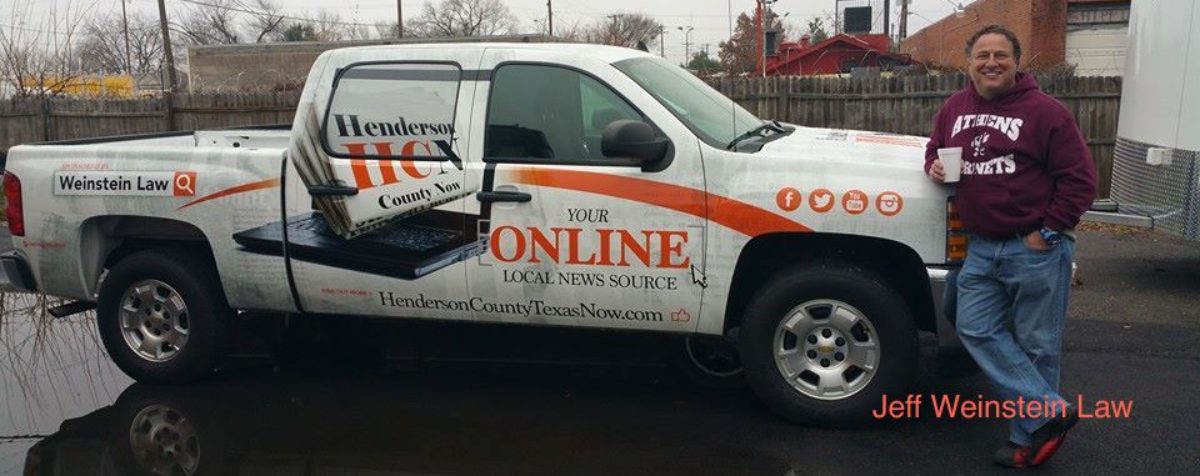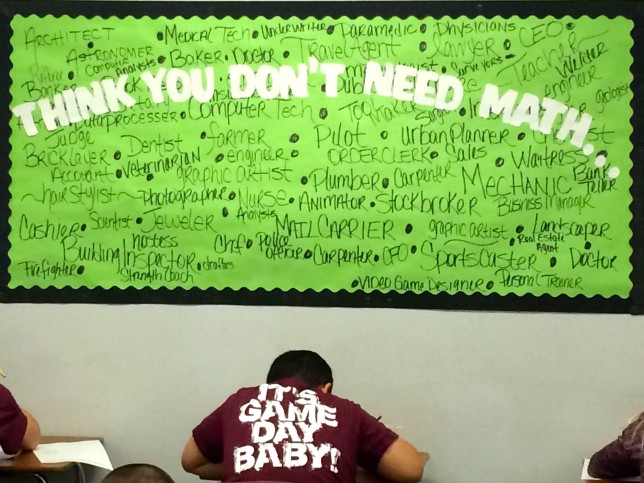By Toni Garrard Clay/AISD Communications Specialist
When Ryan Reeves came to Athens Middle School this year, he brought with him not only a passion for teaching math, but a history of being an athlete and coach. Those two influences have resulted in a new approach to math among seventh-graders. A math unit test is no longer called “test day” for them; it’s “game day.”
“There are 11 standardized unit tests before the STAAR test,” said Reeves. If you make each one exciting — have a special shirt they all wear, and promote a competitive, fun attitude — by the twelfth time (when the STAAR test is administered), it’s not such a big deal.”
Unit tests are taken every three weeks. So it’s “practice, practice, practice,” said Reeves, and then “game day.” Students are encouraged to wear their special “game day” t-shirts, which were provided courtesy of donations from Kevin Lilly’s McDonald’s and Chet Patel’s Super 8.
Fellow seventh-grade math teacher Meagan Buford loves the approach. “It is creating an excitement for the test that I have never seen before,” she said. “You can hear them up and down the hall saying, ‘It’s game day, baby!’ We are creating a culture where students are excited about math, and that is a great thing.”
Reeves and Buford know the middle school years are critical for setting a course for academic achievement, and they are committed to demonstrating to their students that they are capable of more than they might have believed of themselves. While it’s still too early in the effort to report on academic impact, plenty of anecdotal evidence suggests the students are big fans of the game day approach.
“It feels like I’m part of the team,” said one seventh-grader. “And it’s cool that we’re the only people wearing the game day shirts. It feels like I’m more professional.”
The sports-like approach “makes tests less stressful,” said another student. And another: “It shows us that our teacher cares.”
“This is where kids are put on track for their future,” said Reeves. “The kids want to succeed. They want to do well. We’re trying to create opportunities for them to do that.”

